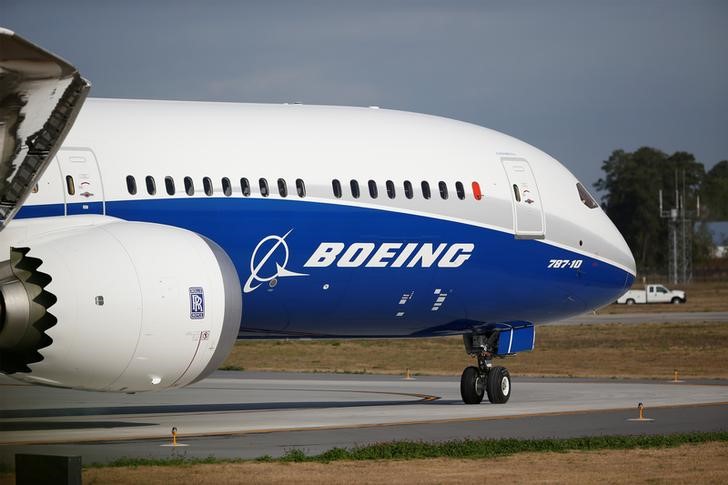Quiver Quantitative - Boeing, (NYSE:BA) unveiled a third-quarter loss and subsequently reduced its annual delivery forecasts for the 737 MAX jet, an aircraft pivotal to the company's portfolio. For the period concluding on September 30, the aviation giant reported a substantial loss of $1.64 billion, surpassing analyst predictions. While the firm's operational cash flow remained in the negative, it managed to match sales expectations. Furthermore, Boeing's executives opted to maintain their annual and medium-term financial projections intact. A key factor influencing these results was the revelation of misdrilled holes on the 737 MAX's fuselage, which subsequently led to a production rate that's roughly half of the initial target.
CEO Dave Calhoun, in an internal communication, acknowledged the challenges, emphasizing that the company's reinforced quality measures and an organizational culture encouraging transparency are facilitating the identification of more elements necessitating rectification. He countered external skepticism by asserting his belief in the company's progress. Adjusting its delivery outlook, Boeing now anticipates shipping between 375 and 400 of the 737 jets in the current year, a reduction from the earlier projected range of 400 to 450. Nevertheless, the company remains optimistic about delivering 70 to 80 units of the 787 aircraft.
Complications arise from a collaboration between Boeing and its supplier, Spirit AeroSystems (SPR). The two firms recently broadened the purview of fuselage inspections, extending it to encompass manually drilled holes. Despite the challenges posed by these misdrilled holes, Boeing reassures stakeholders of no immediate flight safety threats. However, rectifying these issues proves intricate and labor-intensive. This production lag emerges at a time when aviation entities are grappling to cater to the escalating demand spurred by post-pandemic travel. Europe's Ryanair (NASDAQ:RYAAY), for instance, was compelled to modify its winter itineraries, attributing it to Boeing's delivery postponements.
Despite the setbacks, Boeing reported a 13% uptick in sales, reaching $18.1 billion for the quarter ending September 30. This net loss, albeit significant, displayed improvement compared to the previous year's third-quarter loss of $3.3 billion. Concurrently, Boeing's defense segment persisted as a financial burden, incurring additional expenses related to the transformation of two 747 jets designated for Air Force One and satellite contracts. In a bid to strengthen their partnership, Boeing and Spirit AeroSystems recently negotiated a provisional agreement, entailing price modifications on Spirit's offerings and advancing increased funds to the supplier, thus bolstering its sales projections through 2025.
This article was originally published on Quiver Quantitative
